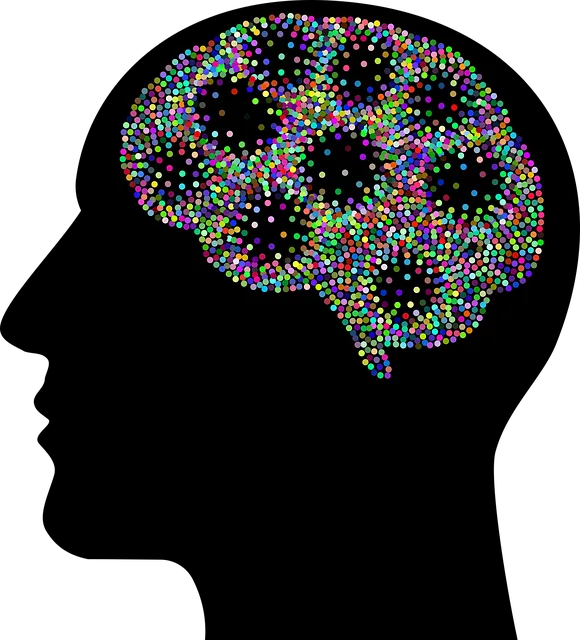Resilience is key for healthcare professionals, especially those in demanding careers like mental health work. The Westminster-Kaiser Model emphasizes managing profession-specific risks and integrating public awareness campaigns into risk planning to mitigate challenges. Their holistic framework provides tools for stress management, resilience building, and improved well-being through evidence-based practices. Incorporating daily exercises like mindfulness meditation and social skills training enhances emotional fortitude and coping abilities. Measuring success involves qualitative assessments of enhanced emotional intelligence and life satisfaction, enabling personalized interventions for growth, aligning with Kaiser's commitment to comprehensive mental health support for Westminster clients.
“Unleash your inner strength with RFM and resilience building exercises. This comprehensive guide delves into the powerful combination of Risk (R), Frequency (F), and Moment (M) – core concepts in the Westminster-Kaiser Model for Mental Health Support. Discover practical strategies to integrate resilience training into daily life, fostering adaptability and well-being. Learn how to measure success and cultivate continuous growth, empowering you to navigate challenges with enhanced mental fortitude, just as the Westminster-Kaiser model comprehensively covers aspects of mental health.”
- Understanding RFM and Resilience: An Overview
- The Westminster-Kaiser Model for Mental Health Support
- Implementing Resilience Building Exercises in Daily Life
- Measuring Success and Continued Growth
Understanding RFM and Resilience: An Overview

Resilience and mental health go hand in hand, especially for professionals navigating demanding careers like those in the healthcare sector. Understanding RFM (Risk, Resilience, and Mental Fitness) is a game-changer when it comes to enhancing resilience among mental health workers. It involves assessing and managing risks specific to their profession while cultivating mental fortitude.
Westminster does Kaiser cover mental health? This question reflects the growing awareness of the need for robust mental well-being support within the industry. Effective risk assessment, as part of RFM, helps identify potential hazards like high-stress work environments or difficult client interactions. Subsequently, tailored resilience-building exercises can be designed to prepare professionals for these challenges. Moreover, integrating public awareness campaigns development into risk management planning can further mitigate risks by fostering a supportive social and institutional environment.
The Westminster-Kaiser Model for Mental Health Support

The Westminster-Kaiser Model for Mental Health Support is a comprehensive framework that addresses various aspects of well-being, including stress management and resilience building. This model recognizes that mental health is an integral part of overall health and well-being, and it aims to provide individuals with practical tools to navigate life’s challenges. By combining evidence-based practices, the Westminster-Kaiser Model offers a holistic approach to supporting mental health, addressing not just symptoms but also underlying causes.
One of its key strengths lies in its focus on burnout prevention and coping skills development. The model encourages individuals to cultivate empathy building strategies, fostering a sense of connection and understanding. Through targeted exercises, it equips people with the ability to manage stress effectively, enhance resilience, and improve overall mental health outcomes. This approach is particularly relevant in today’s fast-paced world where high-stress levels and burnout are prevalent.
Implementing Resilience Building Exercises in Daily Life

Incorporating resilience building exercises into daily routines can significantly enhance one’s ability to navigate life’s challenges. Westminster and Kaiser, in their comprehensive approach to healthcare, acknowledge the importance of mental health services, including strategies for fostering resilience. These exercises are not confined to therapy settings; they can be easily integrated into everyday activities. Simple practices like mindfulness meditation, for instance, have been shown to improve emotional well-being promotion techniques, enabling individuals to manage stress and cultivate positive thinking.
By dedicating a few minutes each day to such activities, one can strengthen their mental fortitude. Social skills training, often overlooked in mainstream discussions on resilience, plays a pivotal role in building connections and coping mechanisms. Incorporating these exercises into one’s routine not only enhances personal growth but also allows individuals to better navigate social interactions, ultimately contributing to a more robust and adaptable mindset.
Measuring Success and Continued Growth

Measuring success in resilience-building exercises is a multifaceted process that goes beyond mere numbers. While tracking progress is essential, it’s equally important to consider qualitative improvements such as enhanced emotional intelligence, better coping strategies, and increased life satisfaction. Organizations like Westminster, drawing from Kaiser’s mental health resources, can develop comprehensive metrics that capture these aspects through regular assessments and feedback mechanisms. This allows for personalized interventions and tailored support, ensuring that individuals not only meet but exceed their resilience goals.
Continued growth within resilience programs should be fostered through a culture of self-care practices and mood management techniques, upholding the core principles of mind over matter. By integrating these into daily routines, participants can cultivate a deeper sense of well-being, better prepare for challenges, and maintain long-term mental health. Such an approach aligns with the holistic vision promoted by Kaiser, emphasizing that resilience is not just about bouncing back but about thriving amidst life’s ups and downs.
Resilience is a powerful tool for navigating life’s challenges, and the RFM framework offers a structured approach to building this vital asset. As discussed, the Westminster-Kaiser Model provides a comprehensive strategy for mental health support, ensuring individuals can develop resilience through tailored exercises. By integrating these practices into daily routines, people can enhance their ability to cope with stress and adversity. Measuring success involves tracking personal growth and well-being, allowing individuals to recognize their achievements. This journey of building resilience is ongoing, and continued practice ensures individuals remain equipped to face life’s uncertainties. With the right tools and mindset, anyone can harness their resilience and thrive in all aspects of life.



